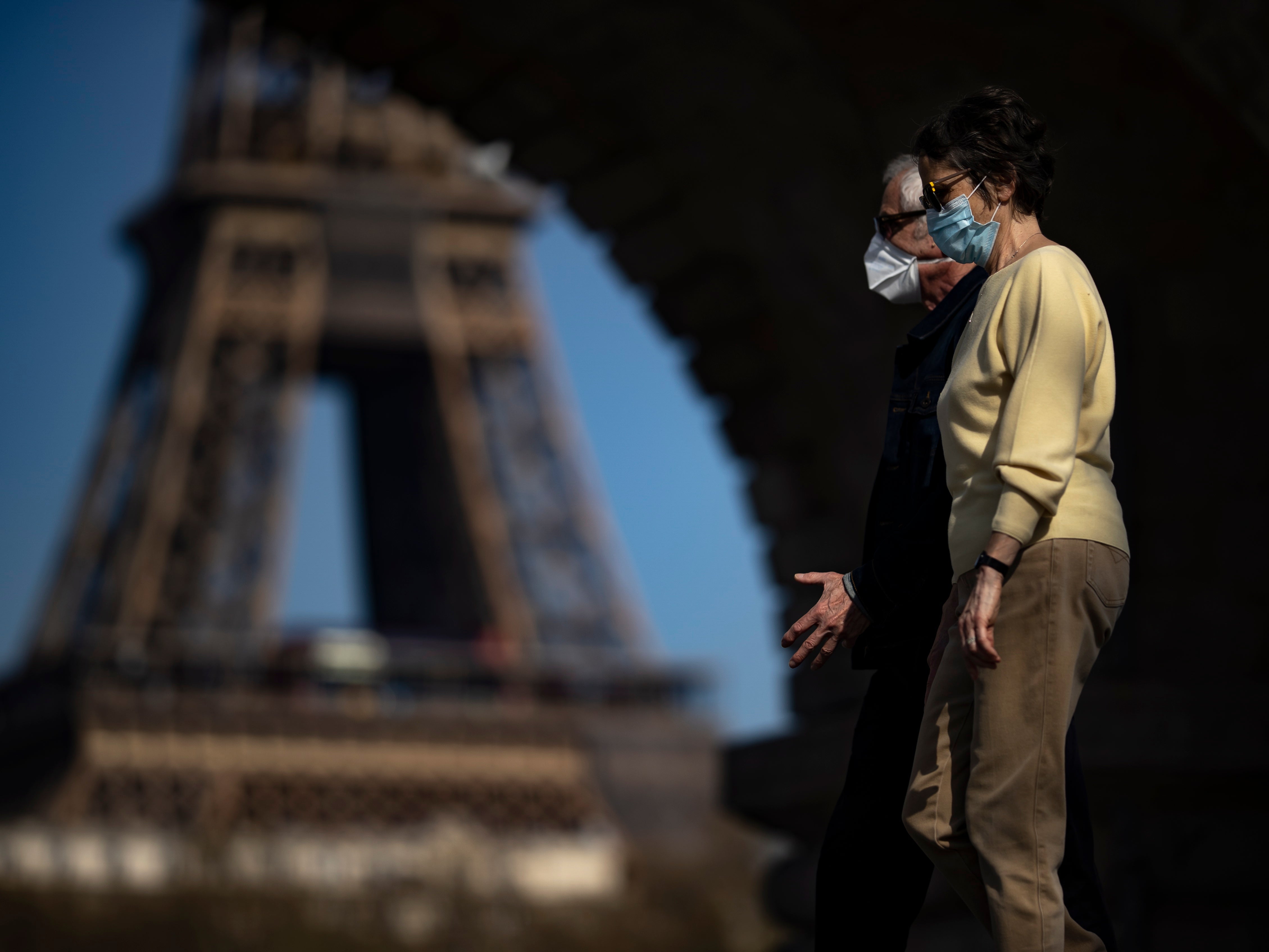Why has France had to lock down now?
‘No region is safe from this virus,’ president says

Your support helps us to tell the story
From reproductive rights to climate change to Big Tech, The Independent is on the ground when the story is developing. Whether it's investigating the financials of Elon Musk's pro-Trump PAC or producing our latest documentary, 'The A Word', which shines a light on the American women fighting for reproductive rights, we know how important it is to parse out the facts from the messaging.
At such a critical moment in US history, we need reporters on the ground. Your donation allows us to keep sending journalists to speak to both sides of the story.
The Independent is trusted by Americans across the entire political spectrum. And unlike many other quality news outlets, we choose not to lock Americans out of our reporting and analysis with paywalls. We believe quality journalism should be available to everyone, paid for by those who can afford it.
Your support makes all the difference.France has entered a third national lockdown in response to a surge of Covid-19 cases in the country as Europe battles its third wave.
President Emmanuel Macron imposed stricter measures on Wednesday evening, extending restrictions that were already in place in Paris and 19 other areas to the whole of France for four weeks from Saturday.
“We must make an additional effort,” he said. “No region is safe from this virus. Everyone should limit their contacts with other people.”
Why is France entering lockdown?
Coronavirus cases have surged dramatically in France in recent weeks, with daily infections doubling to more than 40,000 since February.
The staggering rise in infections threatens to overwhelm the country’s hospitals, where the number of Covid patients being treated in intensive care has reached 5,000 – the highest level since October.
Read more:
Mr Macron has attributed the surge to the more transmissible virus variant first detected in the UK, saying “the famous British variant” has become dominant in France.
What restrictions are being introduced?
The new measures imposed on France include a nationwide curfew, a 10 km (6.2 miles) travel restriction and the closure of all non-essential shops.
The curfew is in place between 7pm and 6am.
Schools and nurseries will also be closed for three weeks from 12 April.
The capital and its surrounding Ile-de-France region, as well as in Hauts-de-France among other departments, have been under lockdown restrictions since mid-March.
How many waves has France had?
Like many European countries, France is currently in the midst of its third coronavirus wave.
Cases are rising across the continent, including in Germany, Italy, Spain and Turkey.
Europe’s surge is mainly being blamed on the B.1.1.7 variant, first detected in Kent, as well as other variants such as the one first discovered in South Africa.
The B.1.1.7 variant is up to 50 per cent more transmissible than the virus that surged last spring and in the autumn, and is spreading rapidly among Europe’s largely unvaccinated populations.
Similarly to Mr Macron, German chancellor Angela Merkel has attributed what she described as a “new pandemic” to the B.1.1.7 variant.
The rising number of cases, relative to the UK, where infection levels have fallen dramatically in recent weeks, is also due to Europe’s comparatively slow vaccine rollout.
EU leaders blame delays in its vaccine drive on supply issues with the Oxford-AstraZeneca jabs.
Just 12 per cent of the French population have received at least one dose of the vaccine. This compares to more than 45 per cent in the UK, which has only had two waves.
Will the third wave hit the UK?
Despite the figures trending in the opposite direction due to lockdowns and the success of its vaccine rollout, the UK may still face another wave of infections.
Boris Johnson and Prof Chris Whitty, England’s chief medical officer, have both warned a third wave of Covid-19 is likely to hit the UK.
The prime minister said the UK should be “under no illusion” over whether it will feel the impact of an uptick in Covid-19 cases in some European countries.
Meanwhile, Prof Whitty told the Public Health Conference 2021: “There will definitely be another surge at some point whether it’s before winter or next winter, we don’t know.
“Variants are going to cause problems, there will be stockouts of vaccines and no doubt there will be multiple problems at a national level but also at a local level – school outbreaks, prison outbreaks, all those things that people are dealing with on a day-to-day basis.”
Join our commenting forum
Join thought-provoking conversations, follow other Independent readers and see their replies
Comments